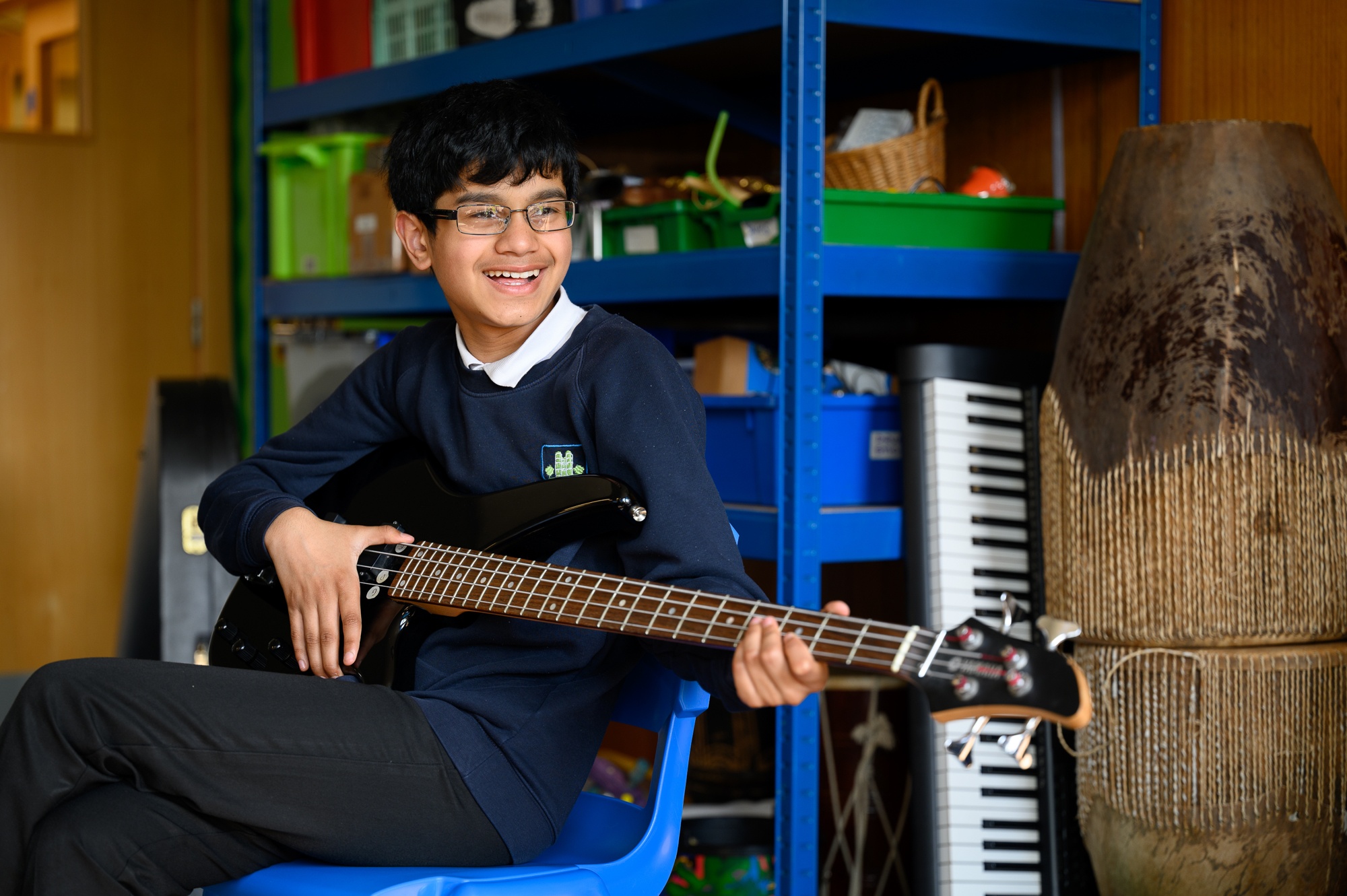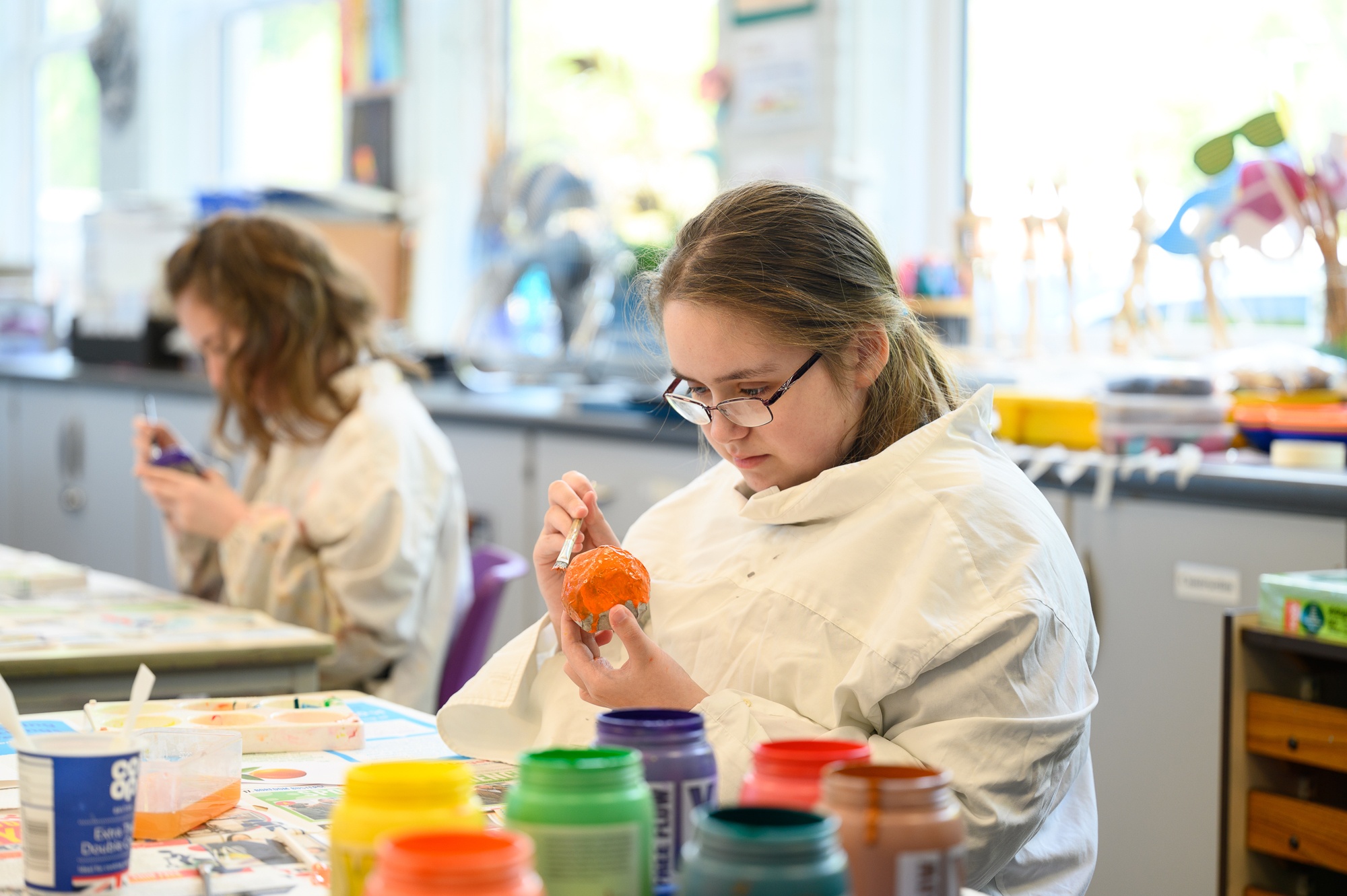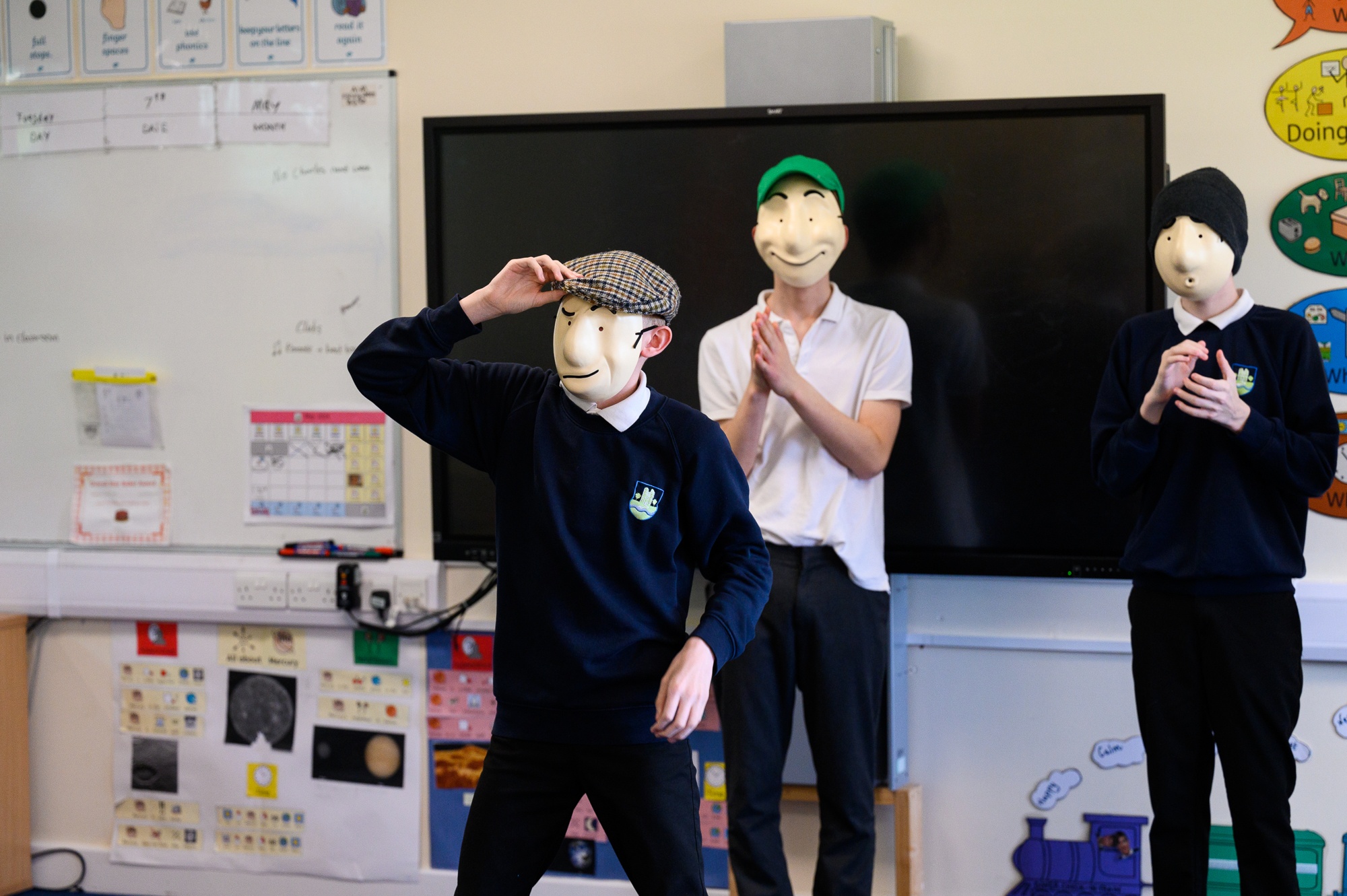Creative Arts
We strongly believe that the Arts are an extremely important aspect of our students' learning. At The Castle School we have a vast array of activities and events that develop a sense of wonder amongst our pupils as well as developing talents and skills.
Newsletters can be found at the bottom of this page.
Click here to read The Castle School Creative Arts Policy
Music
Music at Castle is an inclusive subject which helps all students access the world around them in a creative way. These lessons build on their other work in school, building their choice-making, fine and gross motor, creative expression and emotional understanding, as well as many more. Music is an important part of the school ethos, with extracurricular music being an important and highly respected part of school life with many students accessing it. We hope that you will see us at one of our fantastic performances throughout the year. So that we can share our love of the arts with you.

Art
At The Castle School, we have a comprehensive art room and resources available for pupils to access. Every pupil has the opportunity to explore and experiment the different aspects and mediums of art and are encouraged to invent and create their own unique work.
Each year, the pupils will be developing their skills and understanding of colour, drawing, painting, texture, pattern and form. Within these areas, the pupils will learn about the history of art, culture and the works of different artists.
As their experience, observational skills and creativity grow, so does their confidence and views of the world around them.



Drama
At The Castle School, Drama is a popular subject where pupils learn to express themselves, grow in confidence, and make sense of the world they live in. Lessons are timetabled weekly to Key stage 1,2,3 and to Key stage 4 pupils as part of their Guided Options. Schemes of work are taught termly and normally based around the whole school topic. A weekly after-school Drama Club is also provided for those who show a keen interest in ‘devising and performance’.
Drama is taught as a progressive journey where pupils advance through the stages at their own pace and personal development. At the beginning of the journey, lesson plans incorporate a range of techniques to excite learners, engage all senses and promote early communication and interaction.
As skills advance, involvement becomes more participatory, focused and self-directive. Stories, poetry, personal and social issues are used as stimuli to practice interpersonal, group work and communication skills. In KS3, pupils have the opportunity to develop their language skills by working towards the Voice and Speech LAMDA exams.
Each year, specific classes are able to take their learning outside the classroom by participating in devised and scripted performances in the community. Previous projects include, The Shakespeare School’s Festival, Man Made Dance, Schools’ Choreography Challenge and the Roald Dahl Festivals.





